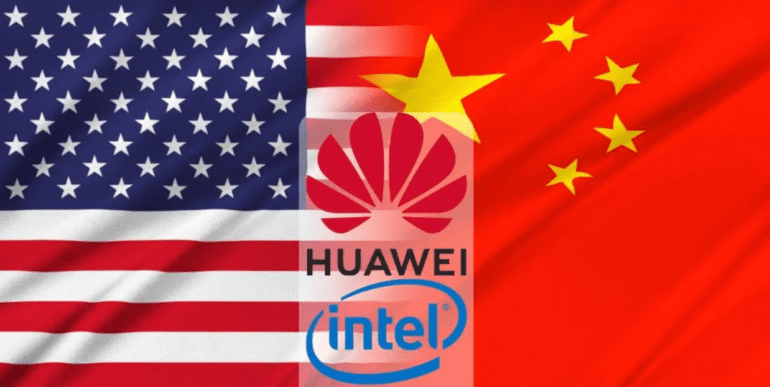- Republican lawmakers criticize Biden administration over Huawei’s new laptop powered by Intel AI chip.
- The US placed Huawei on the trade restriction list in 2019 for violating Iran sanctions.
- Despite sanctions, Intel continued to supply chips to Huawei under a license.
- Huawei’s unveiling of a new AI-enabled laptop sparks anger and questions about the Commerce Department’s approval.
- Sources suggest chips were shipped under preexisting licenses, avoiding recent restrictions.
- Pressure mounts on Biden administration to counter Huawei’s technological progress.
- Export enforcement official acknowledges the impact of restrictions but emphasizes the goal to prevent misuse of US technology.
- Republican lawmakers call for stricter measures against Huawei, expressing frustration over perceived policy inconsistencies.
Main AI News:
US lawmakers, particularly Republicans, have expressed dismay at the recent unveiling of a new laptop by Chinese telecommunications giant Huawei. The laptop, powered by an Intel AI chip, has reignited concerns about the flow of US technology to companies on the country’s trade restriction list.
Huawei, which was placed on the trade restriction list in 2019 for violating Iran sanctions, has been a focal point in the US government’s efforts to limit China’s technological progress. Despite initial sanctions, a license issued by the Trump administration allowed Intel to continue supplying central processors to Huawei for laptop production.
The unveiling of Huawei’s latest laptop, featuring Intel’s new Core Ultra 9 processor, has sparked outrage among some lawmakers. They perceive this as a sign that the Commerce Department may have approved shipments of the new chip to Huawei, despite ongoing tensions between the US and China.
Republican Congressman Michael Gallagher, chair of the House of Representatives select committee on China, expressed frustration, questioning why the Department of Commerce continues to permit US technology to be exported to Huawei.
While sources familiar with the matter suggest that the chips were shipped under preexisting licenses and not subject to recent restrictions, the lack of clarity from the Commerce Department and Intel adds to the controversy.
This development underscores the mounting pressure on the Biden administration to take a stronger stance against Huawei’s advancements, particularly in light of the company’s recent technological achievements despite US sanctions.
At a recent Senate subcommittee hearing, Kevin Kurland, an export enforcement official, acknowledged the significant impact of Washington’s restrictions on Huawei’s access to US technology. However, he emphasized that the goal is not merely to impede Huawei’s growth but to prevent the misuse of US technology for nefarious purposes.
Nevertheless, these assurances have done little to assuage the concerns of Republican lawmakers, who continue to call for stricter measures against Huawei. Congressman Michael McCaul, in a statement to Reuters, emphasized the need to halt approvals for technology transfers to Huawei, expressing frustration over perceived inconsistencies in US policy.
Conclusion:
The continued tension surrounding Huawei’s technological advancements, particularly with the recent unveiling of a new laptop, underscores the complexities of US-China trade relations. Republican lawmakers’ criticism highlights the need for a consistent and stringent approach to regulating technology transfers to Huawei, reflecting broader concerns about national security and economic competitiveness in the global market. This ongoing saga signals the necessity for policymakers to carefully navigate the delicate balance between fostering innovation and safeguarding against potential threats posed by foreign entities.

